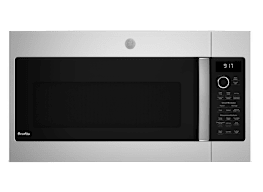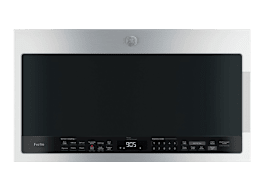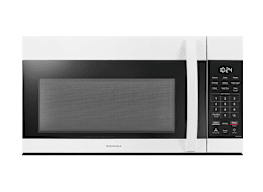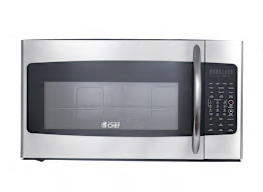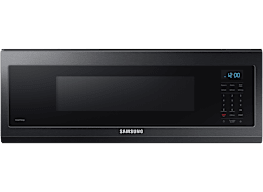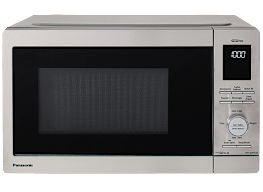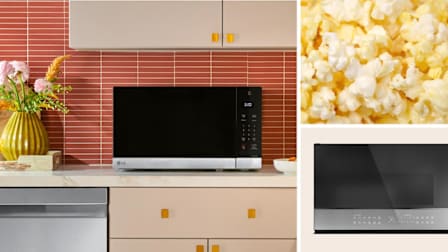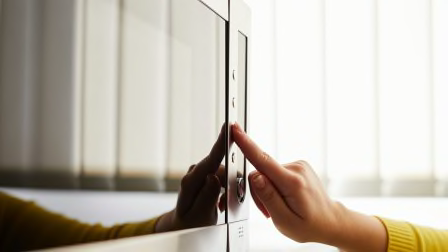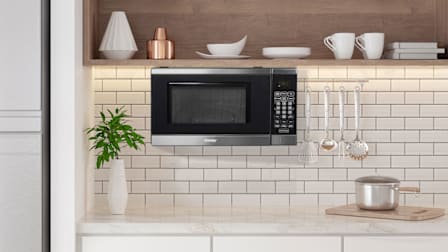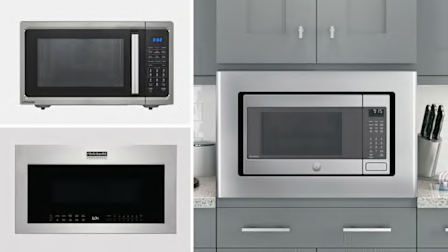Smarter: What’s Safe to Put in a Microwave?
This week I’m interrogating experts about what you can microwave (and what you shouldn’t), including the usual suspects (metal and plastic) and some unusual ones (shelled eggs). Also in this issue: Why you should take your shoes off at the door, and what happens when an EV runs out of juice?
THE BIG STORY
‘In the Hot Seat’
Growing up, my mom had only two safety rules in the kitchen. One was to be careful when using the stove (that was pretty apparent even to my 7-year-old brain). The other was to never stick metal in the microwave, a rule I followed faithfully without ever fully understanding why.
Then came that fateful time a few years ago when I microwaved a bowl of food with a metal fork inside by mistake. Both the microwave and I survived my oversight, but the experience of watching sparks come roaring to life in my microwave was definitely a once-in-a-lifetime lesson, and once was more than enough.
You never want using your microwave to be like playing Russian roulette. So to help you operate your microwave safely, I asked CR experts and microwave manufacturers about the things you can microwave and the things you shouldn’t.
QUIZ
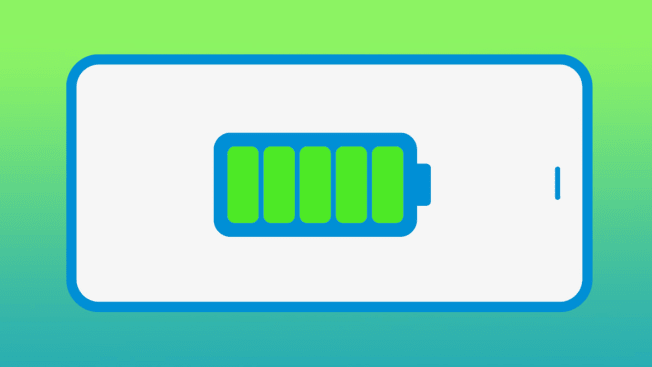
Illustration: Consumer Reports, Getty Images Illustration: Consumer Reports, Getty Images
If you’re streaming on your phone, which drains your batteries more: using the WiFi network or your data?
(The answer is at the end.)
ASK US ANYTHING
There is a lot of interest in electric vehicles these days given the rise in gas prices. Listeners of CR’s “Talking Cars” podcast recently submitted questions to our auto experts about them. Here are a few fun ones.
⚡ Q: Is there any type of break-in period for EVs, equivalent to the break-in procedures for vehicles with internal combustion engines?
There isn’t a break-in for an EV’s electric motor. But for the first 500 miles it’s best to drive not too aggressively so you can properly break in your tires and brakes, says CR auto writer Mike Monticello.
�� Q: I’ve heard that cold weather decreases EV driving range. But what about EVs in hot climates, especially when using the AC?
EV range will be shortened by hot climates and AC, but it isn’t hurt as much as it’s in the cold, in part because a car’s AC is more energy-efficient than its heating system, says Jake Fisher, who runs testing at our 327-acre track.
��Q: What happens the moment an EV runs out of juice? Does it stop in the middle of the road?
Your EV will give you plenty of warning. First, it will sound alarms and warning lights will appear to let you know the battery is running low. The car might also slow down as the battery loses power, says CR auto writer Keith Barry. When that happens, you’ll still have enough power to pull your car to the side of the road or to a safe spot before it stops dead.
Check out more expert responses to questions about EVs here. And if you have a question you want to ask an expert, email me. I’m all ears!
THE GOOD STUFF
Should you take off your shoes at the door?
@consumerreports Keep the nasty stuff 🦠 at the front door by doing this one tip from CR’s Nanoscience Expert James Dickerson. science #cleantok #germs
♬ original sound - Consumer Reports
THE SHORT ANSWER
Are portable air conditioners more effective than a window AC? Eh, no.
RED ALERT
We asked our followers on Twitter and Instagram if they’ve ever put something in a microwave that turned out to be unsafe or dangerous, and a lot of you responded enthusiastically with your microwave mishaps.
The most common mistakes people have made are microwaving dishes with metal trim or heating food with aluminum foil. Someone even shared with us a picture of a scorch mark left in their microwave where the aluminum had come into contact with an interior wall.
And then there are the wackier stories: A person confessed to microwaving a duck toy when they were 5. Another said he once tried to dry a pair of Air Jordan III 1988 in the microwave, which ended up destroying the shoes. A Twitter user shared that their fiancée once microwaved a bottle of maple syrup, which rattled around until it popped and spilled syrup in every place possible. (That must have been great fun cleaning up.)
QUIZ ANSWER
Use WiFi instead of a cellular connection when possible. Our tests have found that WiFi consumes less battery power.

"With great microwaves come great responsibility."
@consumerreports Dry, unevenly heated leftovers? Not again. Learn more through the link in our bio. #foodtiktok #foodtok #microwave #leftovers
♬ original sound - Consumer Reports
Correction: A previous version of this story incorrectly said WiFi uses more of a phone’s battery life.


